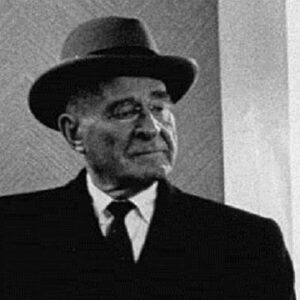Franklin Pierce Adams was one of the most popular and widely read newspaper columnists of his generation, renowned for his wit and humorous writing style. His readers referred to him as ‘F.P.A.’. He wrote the satirical column ‘The Conning Tower,’ which became enormously popular with readers. He began his journalism career at the ‘Chicago Journal’ and later contributed to the ‘New York Evening Mail’, where he wrote the column ‘Always in Good Humor’. One of his most well-known pieces for the New York Evening Mail was the poem ‘Baseball’s Sad Lexicon.’ Pierce Adams had the prolific writing skills that entertained a large audience during a career spanning more than forty years as a successful daily columnist in a New York newspaper. He established a reputation for himself and became acquainted with virtually everyone in the literary world. He also served in the United States Army’s military intelligence wing during World War I, during which time he also wrote a newspaper column.
Childhood & Adolescence
He was born Franklin Leopold Adams to Moses and Clara Schlossberg Adams in Chicago, Illinois, USA. At the age of 13, following a Jewish confirmation ceremony, his middle name was changed to ‘Pierce.’
He graduated from Armour Scientific Academy in 1899 and later enrolled at the University of Michigan for one year. He also spent three years in the insurance industry.
Career of Franklin
He began his career in journalism in 1903 with the ‘Chicago Journal,’ where he wrote sports columns and a satirical column titled ‘A Little about Everything’.
He began his career with the ‘New York Evening Mail’ in 1904. There he had his own column titled ‘Always in Good Humor,’ which also accepted reader contributions.
He wrote ‘Baseball’s Sad Lexicon’ in 1910 for the ‘New York Evening Mail’, a poem about baseball written from the perspective of a New York Giants fan. This is considered to be one of the most well-known works.
He returned to the ‘New York Evening Mail’ in 1911 with another column. The column was a spoof of English politician Samuel Pepys’s Diary and included notes from Pierce’s own experiences.
He resigned from the ‘New York Evening Mail’ in 1913. The following year, he joined the ‘New-York Tribune,’ where he wrote the infamous ‘The Conning Tower’ column.
During World War I, he served in the US Army’s military intelligence wing while also writing the column ‘The Listening Post’ for the editor of the newspaper ‘Stars and Stripes’.
He returned to New York following the conclusion of World War I and resumed his job with the ‘New-York Tribune’.
In 1922, he began working for the ‘New York World,’ where he wrote a column for several years.
He became a member of the ‘Algonquin Round Table’ in the 1920s and 1930s, a highly regarded and intellectual group of writers, actors, and critics in New York City. Members of the group enjoyed a favorable reputation in New York literary circles.
He later transferred to the ‘New York Herald Tribune,’ where he remained until 1937. He then transferred to the New York Post, where he wrote his final column in September 1941.
In 1938, he joined NBC Radio’s ‘Information Please’ as a panelist. ‘Information Please’ was a radio quiz show. He was appointed an authority on poetry, old barroom songs, and Gilbert and Sullivan.
Additionally, he has authored numerous books, including ‘In Cupid’s Court’, ‘Tobogganing on Parnassus’, ‘In Other Words’, and ‘Answer This One’.
Personal History and Legacies
He married his first wife, Minna Schwartze, in 1904. In 1925, he married Esther Sayles Root. He died in New York City on March 23, 1960.
Simon and Schuster published ‘The Diary of Our Own Samuel Pepys’ in two volumes. The book contained an anthology of his newspaper columns.
‘The Melancholy Lute,’ published in 1936, contained a selection of his works spanning three decades. In 1994, he starred in Alan Rudolph’s American film ‘Mrs. Parker and the Vicious Circle.’ Chip Zien played his character in the film.
Estimated Net Worth
The net worth of Franklin is unknown.
Trivia
Popularly known as F.P. A., he was a sharp-witted American columnist best known for his New York Tribune column, The Conning Tower.


